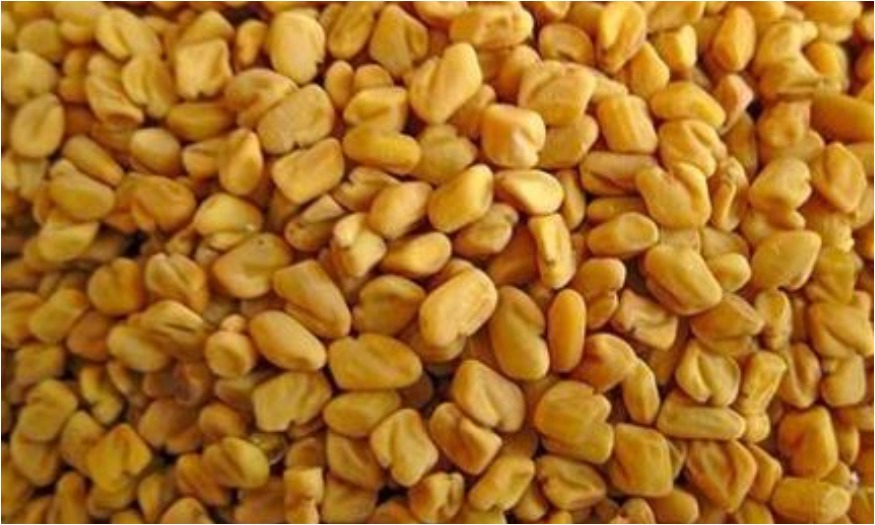
Methi seeds, also known as fenugreek seeds, have been studied for their potential to help reduce cholesterol levels, particularly total cholesterol and LDL (low-density lipoprotein) cholesterol, which is often referred to as “bad” cholesterol. Here’s how methi seeds may contribute to cholesterol reduction:
- Soluble Fiber: Methi seeds are a rich source of soluble fiber. Soluble fiber binds to cholesterol in the digestive tract, preventing its absorption into the bloodstream. This leads to a decrease in total cholesterol levels, as the excess cholesterol is eliminated from the body through feces.
- Bile Acid Binding: Methi seeds may also inhibit the reabsorption of bile acids in the intestine. Bile acids are made from cholesterol in the liver and are essential for fat digestion. When bile acids are excreted from the body along with the fiber-bound cholesterol, the liver needs to use more cholesterol to produce new bile acids, further reducing cholesterol levels.
- Plant Sterols: Methi seeds contain plant sterols, which are structurally similar to cholesterol. These plant sterols compete with cholesterol for absorption in the intestine, leading to reduced cholesterol absorption and lower blood cholesterol levels.
- Antioxidant Properties: Methi seeds are rich in antioxidants, such as flavonoids and polyphenols. These antioxidants may help protect LDL cholesterol from oxidation, which is a key step in the development of atherosclerosis and heart disease.
It’s important to note that while methi seeds have shown potential benefits in reducing cholesterol levels, their effects may vary among individuals. Additionally, methi seeds should not be used as a sole treatment for high cholesterol or as a substitute for prescribed cholesterol-lowering medications. If you have high cholesterol or any other medical condition, it’s essential to work with a healthcare professional to develop a comprehensive treatment plan that includes diet, lifestyle changes, and appropriate medications, if necessary, to manage your cholesterol levels effectively.
